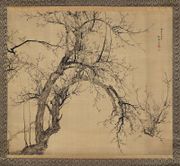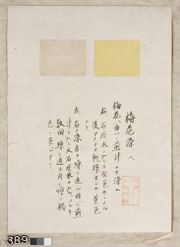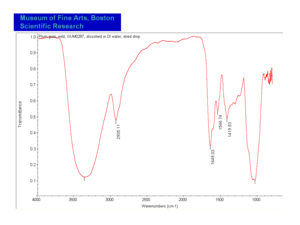Plum (tree)
Description
Any of several deciduous fruit trees, such as Prunus avium and Prunus domestica, that bear small, sweet, reddish purple fruit with a smooth skin. Plum trees have been cultivated for their fruit for over 2000 years. The dark brownish-red wood from plum trees has been used for small decorative articles, inlays and furniture. Plum wood is hard and strong with a straight grain and fine, uniform texture. The trees also exude a water-soluble gum. Plum tree flowers have been used as a dye
- See also ([Uemera Dye Archive (Hakubaika)] )
Synonyms and Related Terms
Prunus avium; Prunus domestica; cerisier des oiseaux (Fr.);cerezo (Esp.); cerejeira (Port.); ciliegio (It.)
Physical and Chemical Properties
Medium height (5-6 m). Flowers in early spring Density = 35-49 ppcf
Additional Information
Schoch, W., Heller, I., Schweingruber, F.H., Kienast, F., 2004:Wood anatomy of central European Species: Stone Fruit: Cherry,Prunus avium L.
Sources Checked for Data in Record
- Ralph Mayer, A Dictionary of Art Terms and Techniques, Harper and Row Publishers, New York, 1969 (also 1945 printing)
- F. H. Titmuss, Commercial Timbers of the World, The Technical Press Ltd., London, 1965 Comment: 35-45 ppcf
- R.Gale, P.Gasson, N.Hepper, G.Killen, "Wood" , Ancient Egyptian Materials and Technology, Cambridge University Press, Cambridge, p. 334-371., 2000
- Van Nostrand's Scientific Encyclopedia, Douglas M. Considine (ed.), Van Nostrand Reinhold, New York, 1976
- Random House, Webster's Encyclopedic Unabridged Dictionary of the English Language, Grammercy Book, New York, 1997
- The American Heritage Dictionary or Encarta, via Microsoft Bookshelf 98, Microsoft Corp., 1998
- CRC Handbook of Chemistry and Physics, Robert Weast (ed.), CRC Press, Boca Raton, Florida, v. 61, 1980 Comment: density=41-49 ppcf (0.66-0.78 g/cm3)


